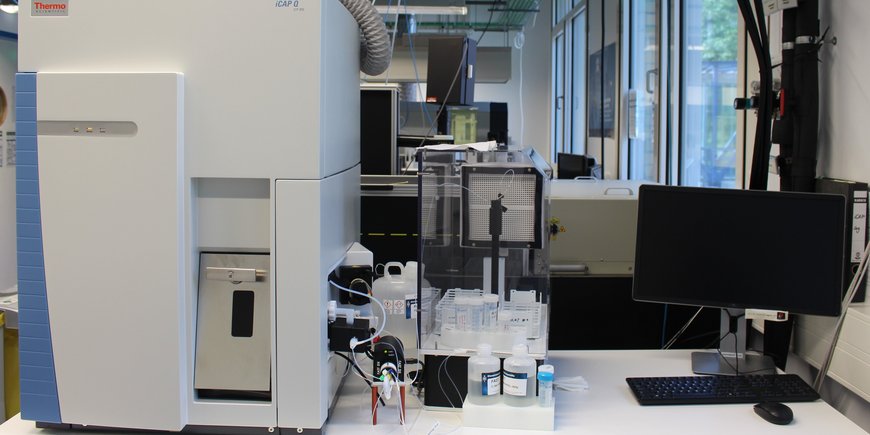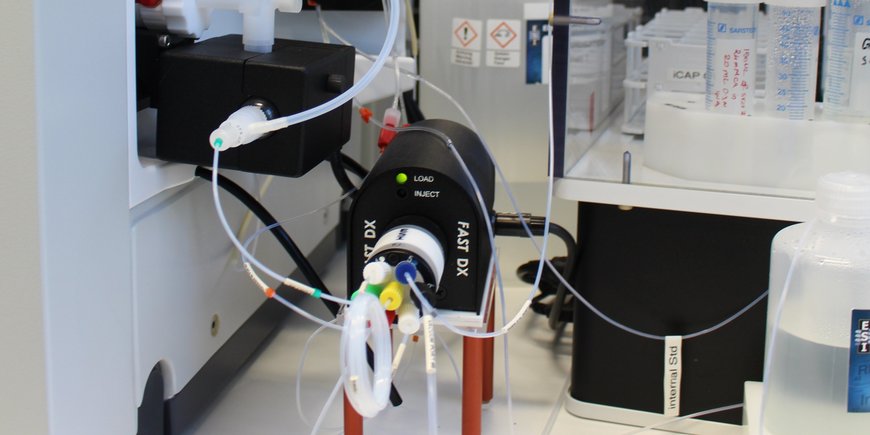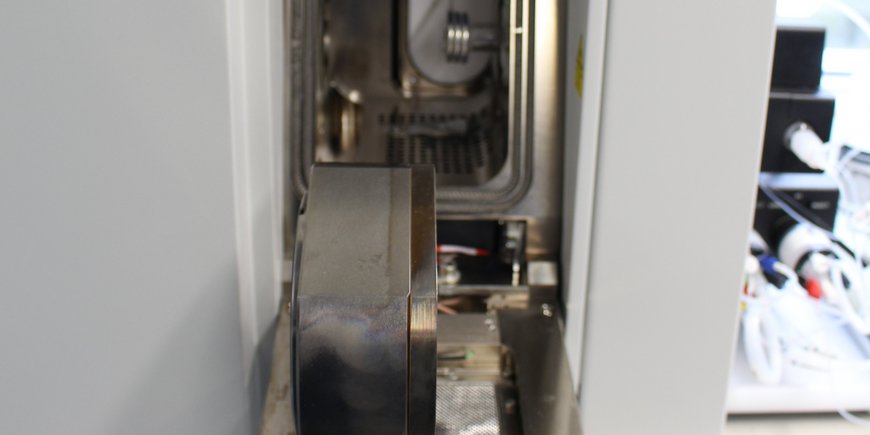What we measure
To analyse element concentrations in a wide range of materials two Q-ICP-MS (iCAP Q by Thermo) are available. Samples can be analyses as solutions (e.g. water samples or rocks after acid-dissolution). Alternatively, a femtosecond laser ablation system can be coupled to the Q-ICP-MS for in-situ micro scale concentration analysis of solid samples.
Principles of Q-ICP-MS and sample preparation
Inductively Coupled Plasma Mass Spectrometry (ICP-MS) is a versatile method for fast concentration analysis. A sample aerosol is introduced into the inductively coupled plasma (ICP), were all elements are atomised, ionised. Transferred into vacuum, then the isotopes of each element are separated by the quadrupole mass analyser and detected by a secondary electron multiplier (SEM). A variety of sample introduction systems is available, e.g. solution aspiration into a spraychamber or direct analysis of solids by laser ablation.
With Q-ICP-MS most elements can be quantified with uncertainties typically less than 10 % relative. Detection limits vary, generally in the ppt to ppb range in solution, and >ppm range with laser ablation on solids. The iCAP Q ICP-MS is equipped with a collision reaction cell to minimise interferences caused by molecule formation in the plasma (e.g., 14N2+ on 28Si+) and improves accuracy and detection limits on interference-prone isotopes. A metal free clean lab with filtered air laminar flow workstations is available for preparation of liquid and solid samples (e.g., acid dissolution, element separation). Here, low concentration samples can be prepared for analysis avoiding contamination.







